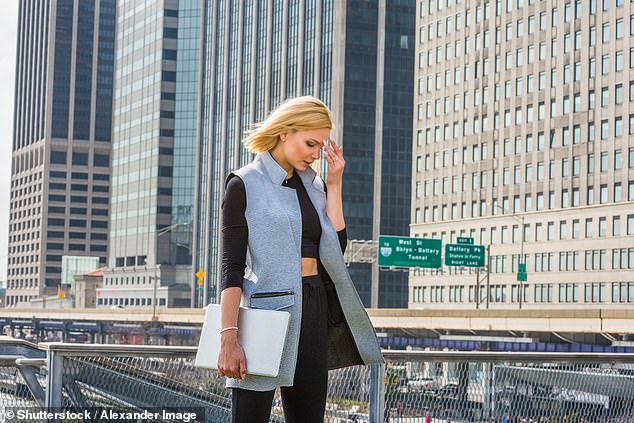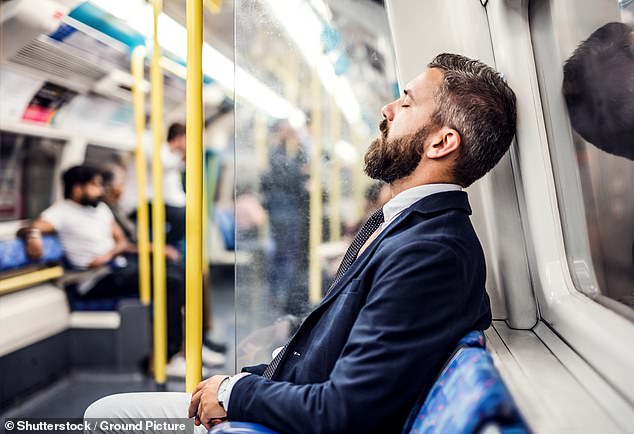London vs New York: Research reveals exactly how much SLEEP the average person in each city gets – so do you sleep more or less than your neighbors?
New York is commonly known as the ‘city that never sleeps’.
Now a study has confirmed that the Big Apple really lives up to this reputation.
Researchers from Simba surveyed 2,000 people in London and New York to understand exactly how many hours of rest they get each night.
The results showed that the average person in New York only gets 6 hours and 36 minutes of sleep per night.
Meanwhile, the average person in London sleeps 6 hours and 48 minutes every night.
Over the course of a year, those extra 12 minutes a night will give Londoners an extra three days of rest!
“According to the American Academy of Sleep Medicine and the British National Health Service (NHS), healthy adults should sleep seven to nine hours per night for optimal health,” says Simba.
‘As city dwellers on both sides of the Atlantic consistently fall short of the essential sleep target of seven to nine hours overall, this new report highlights a looming sleep deprivation crisis in major urban areas.’
Simba researchers surveyed 2,000 people in London and New York to understand exactly how many hours of rest they get each night

New York is commonly known as the ‘city that never sleeps’. Now a study has confirmed that the Big Apple really lives up to that reputation (stock image)
As part of the study, Simba asked New Yorkers and Londoners about the reasons for their lack of sleep.
The cost of living was found to be the biggest source of stress for both groups; 31 percent of Londoners and 30 percent of New Yorkers said this was the biggest worry keeping them awake.
Health was the next leading source of nighttime anxiety (19 percent of Londoners and 21 percent of New Yorkers), followed by noise in the neighborhood.
There, New Yorkers struggle more, with 19 percent citing this as a major sleep disruptor, compared to just 13 percent of Londoners.
In contrast, work stress is a bigger problem in London, with 18 percent of Londoners saying it is a source of insomnia, compared to 14 percent of New Yorkers.
Family problems were also found to cause Londoners (16 percent) more stress than New Yorkers (13 percent).
Lisa Artis, deputy chief executive of The Sleep Charity, said: ‘A good night’s sleep is essential for our physical and emotional health.
‘Research has shown that a lack of sleep can increase the risk of conditions such as heart disease, obesity and stroke and increase our anxiety and stress levels.

Family problems appear to cause Londoners (16 percent) more stress than New Yorkers (13 percent) (stock image)
‘While both cities have vibrant social scenes and demanding jobs, it seems Londoners are making a little more time for rest – or perhaps just hitting the snooze button a little more often!’
By digging deeper into the findings, the researchers were able to identify the specific neighborhoods in London and New York where people get the best and worst sleep.
In London, people living in Barking and Dagenham, Hackney, Havering, Newham, Redbridge, Tower Hamlets and Waltham Forest were found to get the most sleep.
In fact, a third of people in these parts of the city sleep an average of eight hours or more per night.
In contrast, people in Barnet, Camden, Enfield, Haringey, Islington and Westminster in London were found to sleep the least.
More than 40 percent of people in these parts of the city slept an average of six hours or less.
Across the ocean, people in Manhattan appeared to get the most sleep, with almost a third (30 percent) sleeping an average of eight hours or more.
Staten Island residents, meanwhile, got the least sleep, with more than half (58 percent) getting six hours of sleep or less.
Steve Reid, CEO and co-founder of Simba, said: ‘The level of tranquility in both cities is dangerously low.
‘Sleep is essential for overall health, affecting everything from mental wellbeing to physical resilience, and is crucial for coping with the stresses of city life.’
